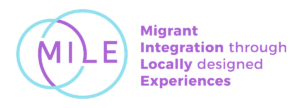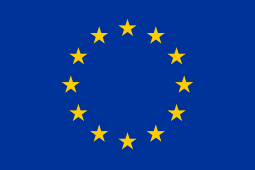In our Q&A series “Three Questions To”, we present different European perspectives on migration, participation and local inclusion, this time with Paul Soete, Chair of the Group on Immigration and Integration, European Economic and Social Committee (EESC). The EESC is an advisory body to the EU, representing employers’ and workers’ organisations and other interest groups. Within its work on migration, integration and participation issues, the EESC organises the annual European Migration Forum, together with the European Commission, to bring in the voice and promote the exchange with civil society and migrant and refugee advocates.
Reflecting on this last year, why is it so important in these times to empower migrants and refugees in Europe and to involve them in decisions and policymaking?
Paul Soete: It’s so important to empower migrants and refugees in Europe and to involve them in decision and policy-making for so many reasons. First, they are contributing members of our society, each with their unique talents, skills and attributes. Secondly, the principles of non discrimination, tolerance and respect for one another is core to our European values. We are an ageing Europe, and therefore, our demographic evolution shows the need for migrants to help make our future more sustainable, prosperous and fairer for all.
Finally, we are one human kind, irrespective of who we are or how we got here. During this year’s European Migration Forum, this idea of “oneness” and “inclusion” was captured with the simple slogan ‘nothing about us, without us’.
How do initiatives like the European Migration Forum (EMF) support the participation of migrants and refugees and strengthen European policy-making and how could national, regional and local governments benefit from such a participatory approach?
Paul Soete: The great thing about the EMF is that is puts participatory democracy at its centre. It is prepared with the inputs of civil society organisations after a stakeholder consultation. For this year’s annual event, some 230 representatives from civil society participated, including migrant-led organisations; youth networks from Europe and beyond; regional and local authorities; and the European and international institutions, to speak passionately on all aspects of integration and inclusion issues. This year, we also had youth leaders from the Philippines, Indonesia, the Western Balkans, and the EU. We had leaders of organisations who fled the civil war in Syria and made new lives for themselves that they can be proud of. The EMF brings together these voices, showcases them, and hears them. EU policy-makers hear them.
The EMF also includes policy-makers at the local and regional level. The EMF is an opportunity for these different voices to come together, to exchange ideas in a safe and non-judgmental space. National, local and regional governments can benefit greatly from this as they get to hear experiences first-hand, and it also makes the good work they are doing to try to integrate migrants and refugees more tangible, and the room for improvement more identifiable.
Looking ahead, what are some of the EESC’s policy proposals to
promote the long-term inclusion and wellbeing of migrants and refugees and which partners and stakeholders will be crucial to involve in these plans?
Paul Soete: The EESC does not create policy, it provides its opinion on EU policy, as voiced by social partners and civil society. It believes that Europe can only be better off with the long-term inclusion and wellbeing of migrants and refugees, this includes access to language classes, education and training, childcare services, recognition of qualifications, and ease of visa requirements. For instance, how the EU has rapidly responded to the crisis in Ukraine ought to be the blueprint for how we treat all refugees.
It’s important that Member States and the EU take the lead on this. But as we know so well, integration and inclusion can only succeed if there is buy-in from the local communities that welcome migrants and refugees. Communities need to be supported, any fears or concerns they have need to be assuaged. We are going through stressful times, and we need to look out for each other, communities need to know that they are valued and appreciated and that we thank them for their support.
For your information on our initiatives, please find the following EESC opinions on integration and information about our 2022 EESC civil society prize which rewards effective, innovative and creative initiatives which aim to create a better future for European youth and help civilians suffering as a result of the war in Ukraine.
Thank you.
EESC opinions on integration and inclusion:
- SOC/668: Action Plan on Integration and Inclusion
- SOC/649: A New Pact on Migration and Asylum
- SOC/641: Integration of women, mothers and families with a migrant background in the EU Member Member States and target language levels for integration (Exploratory opinion at the request of the German presidency)
The views presented in this interview do not necessarily represent the opinions of the MILE project and consortium partners.


